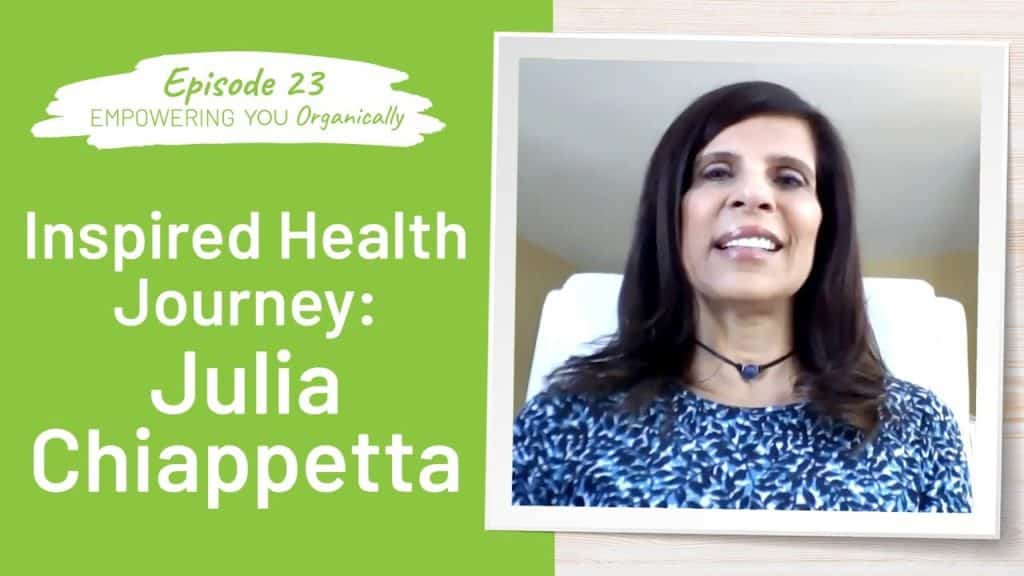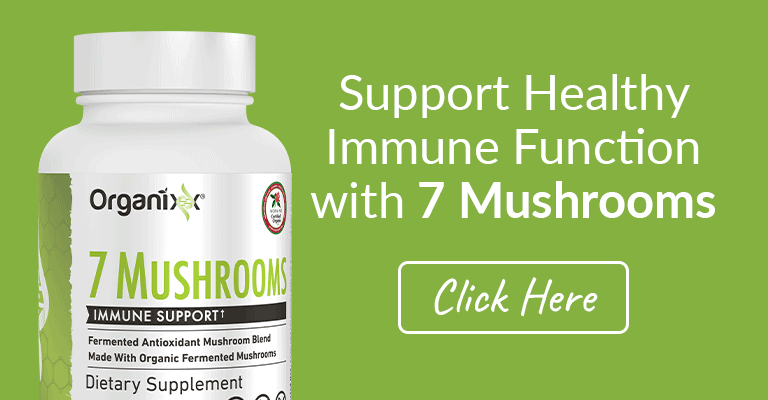Empowering you Organically – Season 4 – Episode 23
Title: Inspired Health Journey: Julia Chiappetta
Hosts: Jonathan Hunsaker & TeriAnn Trevenen
Guest: Julia Chiappetta
Julia Chiappetta Julia is a breast cancer survivor and author of “Breast Cancer-The notebook”, a reference guide that provides a foundation of facts to the newly diagnosed, survivors or those wishing to take a preventative view from age 18 and up.
- Julia Chiappetta is the Owner and President of Julia Chiappetta Consulting (JCC Group LLC). Her expertise includes: Marketing, Branding, Meeting & Event Planning & Business Development. Her unique branding style is influenced by her interactions with many cultures and countries, who have welcomed her.
- Julia is a visionary, writer and problem solver whose life took a turn eighteen years ago when she heard the words “you have breast cancer.” Facing her diagnosis head on, she began researching alternative therapies and implemented them to heal her body.
- Six years later she published Breast Cancer-the notebook (Gemini Media 2005), to share what she had learned to the newly diagnosed, anticipating the need to knowledge that she was challenged by in 2000.
- She continues to seek optimum health by fueling her body with an organic, mostly raw diet, cross-training, running and prayer.
- She sits on boards for: The Annie Appleseed Project, Greenwich Christian Preschool, Best Answer for Cancer, The Pink Fund and The Board of Health, Town of Greenwich, Connecticut. Notable engagements include two invitations to The White House by First Lady Laura Bush’s team, to discuss global education to women in third world countries focused on diet and lifestyle changes.
- She has appeared on: Fox News, NBC, CBS and several radio broadcasts. She has been interviewed by Vogue, Shape, Self, Natural Health, Breast Cancer Magazine & Nature and Health Australia to name a few.
- She continues to speak at conferences and released a series of videos on You Tube called Julia the Conqueror. At present she writes a Health & Wellness Columnist and actively pursues encouraging others through advocacy opportunities; where she finds joy, peace and purpose
Diagnosed with Breast Cancer in 1999
- In Julia’s words, “For me, in my own mind, what’s drastic is putting chemotherapy into your body. For me, what’s drastic is burning my body with radiation, or taking drugs, or puking over a toilet bowl, or losing all of my hair and every healthy cell in my body.”
- She decided to implement something completely different. Julia’s protocol included giving up her six-figure income, the career that she’d built her entire life to succeed at, which involved traveling all over the world, producing events, and marketing and branding, and not having a life, and not having proper rest, and a lot of stress.
- She eliminated toxic relationships.
- She also tried to eliminate all the toxins in her body.
- She sought out natural solutions to support her body as she fought the cancer.
- Julia considers herself ‘healed’ and not merely in remission.
Julia Became the CEO of Her Own Body
- High Nutrient Superfoods
- Quality Supplements
- Organic Food – Mostly Raw Vegan
- Anti-Inflammatory & Alkaline Diet
- Juicing – wheatgrass, fruits, vegetables
- Exercise
- Non-Toxic Home Environment
- Non-Toxic Personal Care Products
- Constant research and awareness of natural health advancements.
* * *
Subscribe to Empowering You Organically
Never miss an episode!
APPLE PODCASTS SPOTIFY GOOGLE PODCASTS
–
Episode 23 – Inspired Health Journey: Julia Chiappetta




